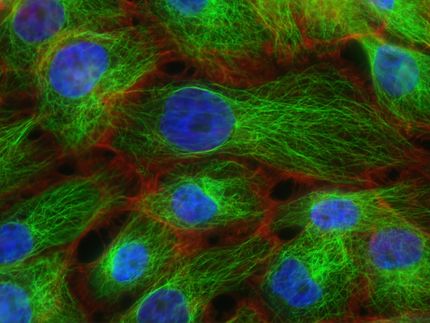Red wine could help treat multiple types of cancer
Resveratrol might provide extra punch to cancer cells during treatment
A recent study by a University of Missouri researcher shows that resveratrol, a compound found in grape skins and red wine, can make certain tumor cells more susceptible to radiation treatment. This research, which studied melanoma cells, follows a previous MU study that found similar results in the treatment of prostate cancer. The next step is for researchers to develop a successful method to deliver the compound to tumor sites and potentially treat many types of cancers.
"Our study investigated how resveratrol and radiotherapy inhibit the survival of melanoma cells," said Michael Nicholl, MD, assistant professor of surgery at the MU School of Medicine and surgical oncologist at Ellis Fischel Cancer Center in Columbia, Mo. "This work expands upon our previous success with resveratrol and radiation in prostate cancer. Because of difficulties involved in delivery of adequate amounts of resveratrol to melanoma tumors, the compound is probably not an effective treatment for advanced melanoma at this time."
The study found that melanoma cells become more susceptible to radiation if they were treated first with resveratrol. The MU researcher found that when the cancer was treated with resveratrol alone, 44 percent of the tumor cells were killed. When the cancer cells were treated with a combination of both resveratrol and radiation, 65 percent of the tumor cells died.
Nicholl said his findings could lead to more research into the cancer-fighting benefits of the naturally occurring compound.
"We've seen glimmers of possibilities, and it seems that resveratrol could potentially be very important in treating a variety of cancers," Nicholl said. "It comes down to how to administer the resveratrol. If we can develop a successful way to deliver the compound to tumor sites, resveratrol could potentially be used to treat many types of cancers. Melanoma is very tricky due to the nature of how the cancer cells travel throughout the body, but we envision resveratrol could be combined with radiation to treat symptomatic metastatic tumors, which can develop in the brain or bone."
Resveratrol supplements are available over the counter in many health food sections at grocery stores. Nicholl does not recommend that patients rely on resveratrol supplements to treat cancer because more research is needed.
Nicholl's study was published in the Journal of Surgical Research, the journal for the Association for Academic Surgery. If additional studies are successful within the next few years, MU officials will request authority from the federal government to begin human drug development. This is commonly referred to as the "investigative new drug" status. After this status has been granted, researchers may conduct clinical trials with the hope of developing new treatments for cancer.
Most read news
Organizations
Other news from the department science

Get the life science industry in your inbox
By submitting this form you agree that LUMITOS AG will send you the newsletter(s) selected above by email. Your data will not be passed on to third parties. Your data will be stored and processed in accordance with our data protection regulations. LUMITOS may contact you by email for the purpose of advertising or market and opinion surveys. You can revoke your consent at any time without giving reasons to LUMITOS AG, Ernst-Augustin-Str. 2, 12489 Berlin, Germany or by e-mail at revoke@lumitos.com with effect for the future. In addition, each email contains a link to unsubscribe from the corresponding newsletter.























































